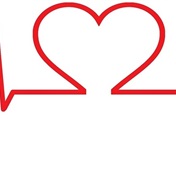
In an effort to save lives, the AHA issued guidelines to help women cut their risk of cardiovascular disease, which are published in the latest issue of the AHA’s journal, Circulation. According to the AHA, every woman should adopt a more personal approach to reducing her risk of heart disease and stroke.
It is expected that many countries will follow suit and implement similar guidelines. The Heart Foundation of Southern Africa calls on South African women to take both these guidelines and their health to heart.
The guidelines are important because previous survey findings have shown that many women are unaware that cardiovascular disease, including heart disease and stroke, is the leading cause of death among women. Many are oblivious to the fact that certain factors increase their disease risk, such as obesity, physical inactivity, and diabetes. However, even the ones that are aware of these risk factors, take little or no action to reduce their own risk factors.
The guidelines to reduce risk
Step 1: The first step to reducing risk is to know that you are at risk, writes the AHA.
A woman should consult her doctor to determine her risk of having a heart attack if she:
- is older than 50,
- is obese or overweight,
- is a smoker,
- is physically inactive,
- has a family or personal history of heart disease, diabetes, stroke or hypertension.
Step 2: A woman’s doctor will determine her risk level based on a standardised heart risk scoring method developed by the Framingham Heart Study.
Low-risk women are those who have a less than 10 percent chance of having a heart attack within the next ten years. Intermediate risk women have a 10 to 20 percent chance, and high-risk women have a 20 percent or higher chance.
Women who have had a heart attack, have diabetes, or have other vascular diseases (e.g. stroke or deep vein thrombosis) are also considered to be at high risk of a heart attack.
Step 3: Once a woman's risk is determined, her risk level should help define her personal strategy for heart disease prevention.
The general guidelines for all women, independent of risk level, are:
- Adopt lifestyle changes proven to reduce your risk of heart disease such as smoking cessation; physical activity of at least 30 minutes at least three times per week; a heart-healthy diet that includes plenty of fruits, vegetables, and whole grains and limits saturated fats; and maintaining a healthy weight.
- Know your numbers - that is blood pressure (if it is higher than 140/90 mm Hg, it should definitely be treated), cholesterol levels (if its not lower than 5 mmol/liter, diet and/or drugs may be needed) and weight (lose weight if you are overweight).
- Do not use hormone therapy (owing to new research showing an increased risk in women with known cardiovascular disease and no effective prevention in women without known cardiovascular disease) or antioxidant vitamin supplements for heart disease prevention in women (owing to a lack of research supporting their effectiveness in heart disease prevention).
Additional and particular guidelines for treatments for women with an intermediate or high risk, are (in a nutshell):
- Intermediate-risk: Aspirin if blood pressure is controlled and the benefit outweighs the risks of gastrointestinal bleeding, haemorrhagic stroke or any other potential side effects.
- High-risk: ACE inhibitors and beta-blockers (to control hypertension), and statins (to lower cholesterol levels) for all, even if their "bad" LDL cholesterol levels are relatively low. Niacin and fibrate therapies are recommended for woman with a low level of "good" HDL cholesterol or high triglycerides. Women with existing heart disease should be evaluated for depression and treated when necessary. Aspirin therapy is recommended for blood-thinning purposes. Women may also benefit from supplementation with omega-3 fatty acids and folic acid.
Although the risks associated with uncontrolled cholesterol, blood pressure, and other risk factors increase with age, the benefits of treatment are almost immediately apparent for every age group.
The American survey also showed that many women believe in unproven strategies. The survey showed 64% of women said antioxidant vitamin supplements, including vitamins E, C, and A, could prevent heart disease, although many studies have shown no benefit. In addition, nearly 30% of women cited aromatherapy (inhaling fragrances) as a way to protect their hearts despite a lack of research to support this.
The guidelines were endorsed by more than thirty organisations, including the National Institutes of Health (NIH), American Diabetes Association, the US Centers for Disease Control and Prevention (CDC), and the World Heart Federation.
SOURCES:
Circulation: Journal of the American Heart Association, Feb. 4, 2004; vol 109: pp 672-692.
American Heart Association: Lori Mosca, MD, MPH, PhD, director, preventive cardiology, New York-Presbyterian Hospital/Columbia University Medical Center, and chairwoman of the collaborative group that compiled the guidelines and Nanette Wenger, MD, professor of medicine, Emory University School of Medicine; chief of cardiology, Grady Memorial Hospital, Atlanta and member of the AHA writing team that compiled the guidelines.




 Publications
Publications
 Partners
Partners














